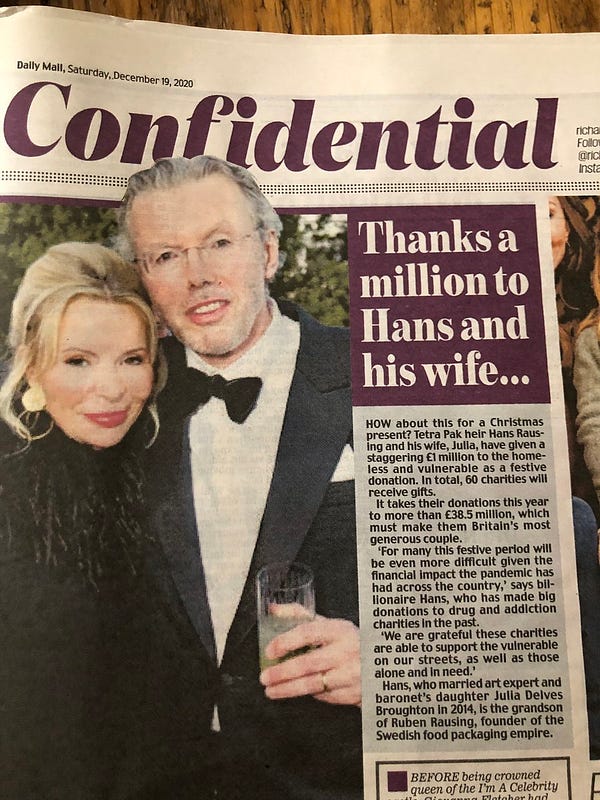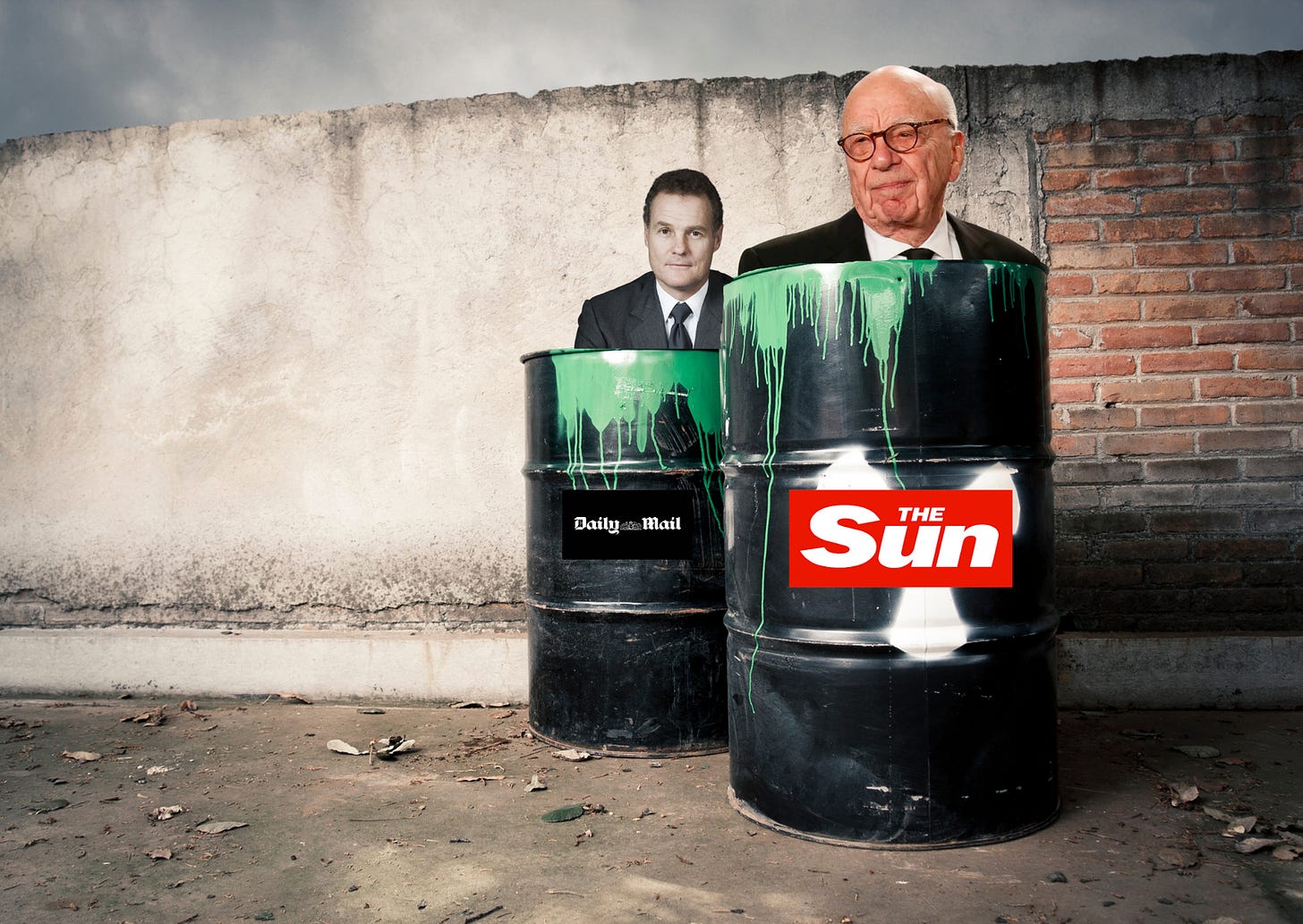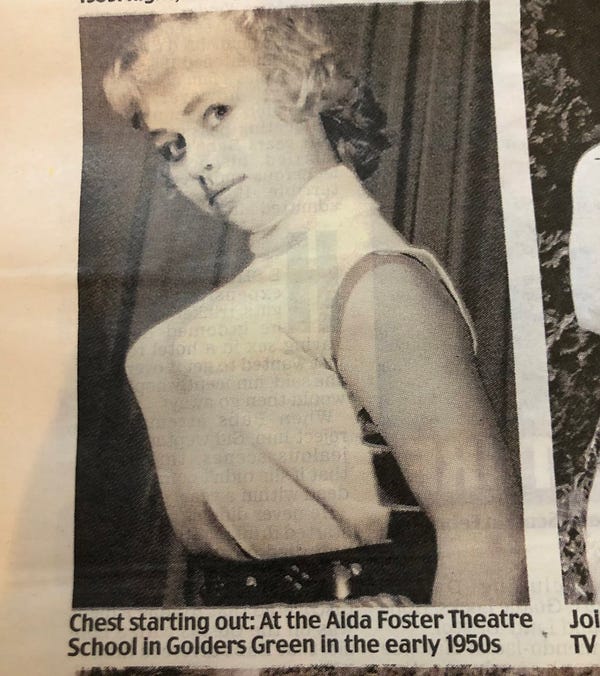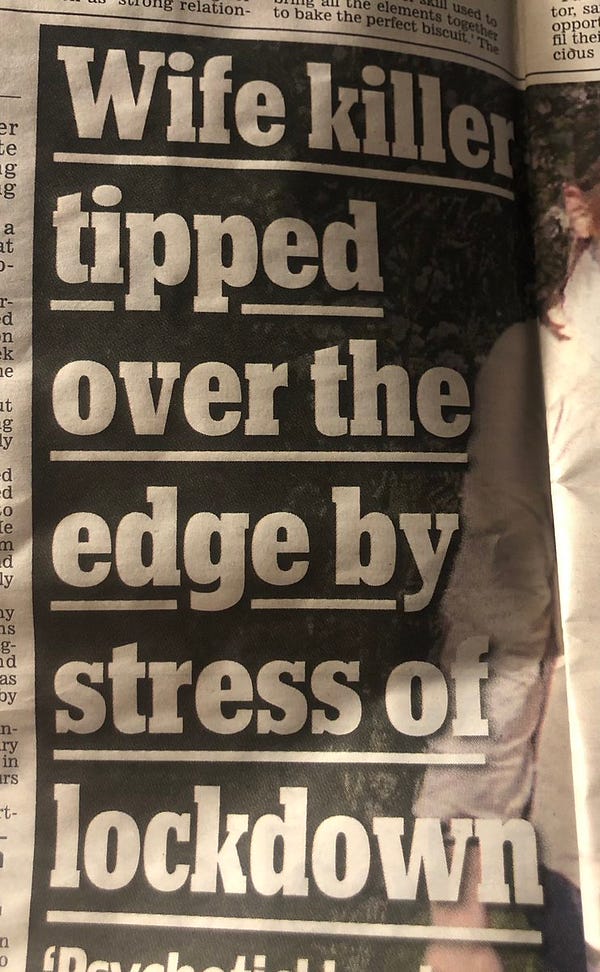Poisoned ground: The tabloids fuel the toxic culture that ultimately kills women...
... then they weep and wonder what could possibly be done.
After days obsessing over and denigrating one woman — Meghan Markle, the famous wife of a prince — the tabloid front pages shifted to the horrific end of another woman whose name has only become widely-known in death. The front page of Friday’s Sun featured a large picture of Sarah Everard.
The headline was a straight and factual one — Sarah suspect linked to sex offence … did cops fail to act? — and the 65-word front-page story beneath it avoids hyperbole, speculation and sprinkling in too much tabloidese. Set into the text box there is a small image of the suspect.
Two pages later, on page 3 — which The Sun uses as its daily place for a spurious story about a woman in lingerie or a bikini — Bryana Holly, an American model and the partner of the British actor Nicholas Hoult is pictured in a pink two-piece swimsuit, under the headline ‘Holly-Day In The Sun’.
The Sun and its parent company News UK got a lot of coverage in 2015 for ‘scrapping’ Page 3, dropping the topless pictures that had been printed there since 1969 when Rupert Murdoch acquired the title and turned it tabloid. But Page 3 just put its top on. On days when actual news needs page 2 and 3, the nearly nude news story merely ships down the flat plan to page 6 or 7.




In Friday’s newspaper, an opportunistic op-ed by Priti Patel (“I’ll do all I can to protect women and girls”) shares a spread with a story about Nicole Scherzinger wearing a dress. That’s the story. On the next page, Ally Ross dismisses Meghan Markle as an “irritating diva”. Later in the paper, there’s a ‘story’ on Alexandra Burke that simply two paparazzi pictures of her exercising in the park (“Alexandra Burke looks perky in pink as she heads to the park for a work-out.”)

You could dismiss those stories as harmless or note that some of the picture stories are set up with the cooperation of PR people, but what does day after day of that kind of coverage create? In The Sun, women are still predominantly there to be leered over and judged on their looks. It’s fair game to have snappers follow a famous woman and photograph her going about her daily life — stalking with a contract — and The Sun remains the official paper of men who shout things like, at best, “Cheer up, love, it might never happen.”
The Daily Mail, a paper with a huge female readership, is no better. It dedicates every edition to making women feel insecure and unhappy about their bodies, relationships, and personal choices. It also talks out of both sides of its mouth when it comes to issues like sexual assault, street harassment, domestic violence and workplace harassment.
Friday’s paper provided a perfect example of that two-faced tendency. The front page was mostly dedicated to the ongoing fallout from Meghan and Harry’s Oprah interview but the second story (“See pages 10 & 11”) was about the man accused of Sarah Everard’s kidnap and murder. But just a few pages later it dedicated a double-page spread to casting aspersions on a woman who accused a prominent financier (and Conservative Party donor) of assaulting her.
The headline speaks dismissively of a “grope case” and in the copy, the woman’s decision to report what she says happened — evidence which magistrates have now dismissed as “riddled with inconsistencies” (as it well could be 22 years after the incident) — is described with sarcastic scare quotes as ‘courage’. While the financier was cleared in the case, he did admit to propositioning the woman while his wife was heavily pregnant with their third child. Oddly, The Mail’s usual morality police act doesn’t kick in about this fact.
Later in the paper, The Mail returns to the issues kicked back into the spotlight by the murder of Sarah Everard with a double-page spread featuring seven women writing about how they feel walking at night and their safety in general. But, of course, the paper also has to include the views of a man — the libel-loving Stephen Pollard — whose contribution is summed up by the subhead, “I just hadn’t realised how bad things were.”
Just a few pages on, the supremely unpleasant Sebastian Shakespeare’s gossip column makes a mockery of the issue with an item headlined “Why even pop’s Ellie feels unsafe out at night”. Even?! Is celebrity instantly some shield against the threat of predatory men? But why should I expect even a drop of class from a paper that marked the death of Barbara Windsor with a pun about her breasts? Using a picture of her when she was still a teenager no less…
I’ve only referenced two editions of two tabloids from the same day in this edition so far, but don’t be fooled into thinking that they might be outliers. Day in, day out, The Sun, The Daily Mail and the other tabloids use women as fodder — objectified, observed, and undermined — even as they purport to publish ‘empowering’ stories of female success.
Speaking ahead of a documentary about the death of her daughter Caroline — who was hounded by the tabloids during her TV career — Christine Flack said:
I hope the newspapers who wrote all the horrible things about Caroline will take away that before they print anything, at least find out if it’s true. It’s someone’s life, it’s someone’s child, it’s someone’s sister or brother. I don’t think they’ve learned yet.
I hope that happens too but I won’t hold my breath. The British media is ongoing proof of the famous Upton Sinclair quote: “It is difficult to get a man to understand something when his salary depends upon his not understanding it.”
Christine Flack’s experience of seeing what the tabloids did to her daughter left her scared of speaking out. She says:
You are frightened to say anything, or even I shouldn’t say what I’m saying now,” she said. “But do you know, someone’s got to say something at some time and not be frightened … because of what the papers will do to you.


The Mail, personified by Sarah Vine, tried to deflect its role in Caroline Flack’s story onto its perpetual scapegoat — social media — but in the hours after her death, it published 16 stories about her. The number rocketed over the following days, adding to the huge number of ‘articles’ The Mail had written about Flack in the weeks after The Sun published a front-page showing her bloodied bedroom following an alleged assault on her partner.


Misogyny is written right through the middle of the British tabloid press like the message in a stick of particularly rancid Brighton rock. Of course, it’s not directly responsible for the deaths of women, but its collective worldview — minimising abuse, finding excuses for male violence (particularly those incidents perpetrated by rich men), treating women as objects to be scrutinised and found wanting, attacking any attempt to change behaviour — is a huge contributor to the toxic culture which breeds that violence.
When a woman is killed, the tabloids will never consider their place in the system. Instead, they scour social media, demand more police on the streets (even in a case when the accused is a serving police officer), and scrabble around for music, films, and games that might really be the ones to blame. The output of their own news pages and columnists can never be identified as a contributing factor to women feeling unsafe.
The British tabloids tend to turn their attention to the murder of women — a woman is killed in Britain on average once every three days — when there is a photogenic victim and a dramatic story to tell. When women are abused and harassed, the tabloids more often than not find a way to minimise the issue, to suggest that men ‘can’t even flirt with a woman’ any more or that what happened was some cheeky seaside postcard occurrence.


The tabloids — especially The Daily Mail — will contort themselves into preposterous shapes to make excuses for men who murder women. They’ll talk about ‘stress’ and include quotes, as a Daily Mail story on the man accused of Sarah Everard’s murder did this week, about how “a fine upstanding man” the alleged killer was. This is the culture that makes women afraid to speak up about harassment and violence. It is the culture that makes them feel that they will not be listened to or believed. The red tops have red hands.





